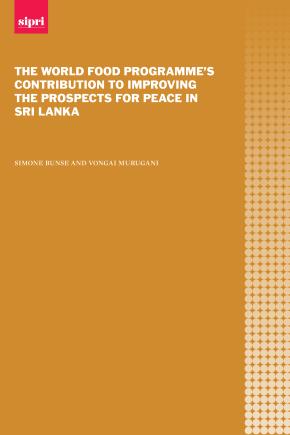The World Food Programme’s Contribution to Improving the Prospects for Peace in Sri Lanka
The World Food Programme (WFP) has supported food security and nutrition in Sri Lanka since 1968. Based on research conducted in the Monaragala district in the south, and the Mullaitivu district in the north, on gender dynamics and community resilience, this report aims to identify the ways in which selected WFP projects impact the prospects for peace. The study analyzes the linkages between gender and social cohesion of two WFP resilience-building projects. Its results show that WFP’s projects had the potential to improve social cohesion, especially through the involvement of women in higher-value agriculture and the provision of sustainable income sources. The report highlights the possibilities of strengthening gender transformation through WFP engagement and of contributing to sustainable peace in a particularly difficult operating context where ethnic and religious divisions are wide and gender grievances are often ignored.
1. Introduction
2. Sri Lanka: Country context
3. Gender context and gender-related grievances in Sri Lanka
4. Research methods and limitations
5. Findings: WFP engagement in Sri Lanka
6. Conclusions


